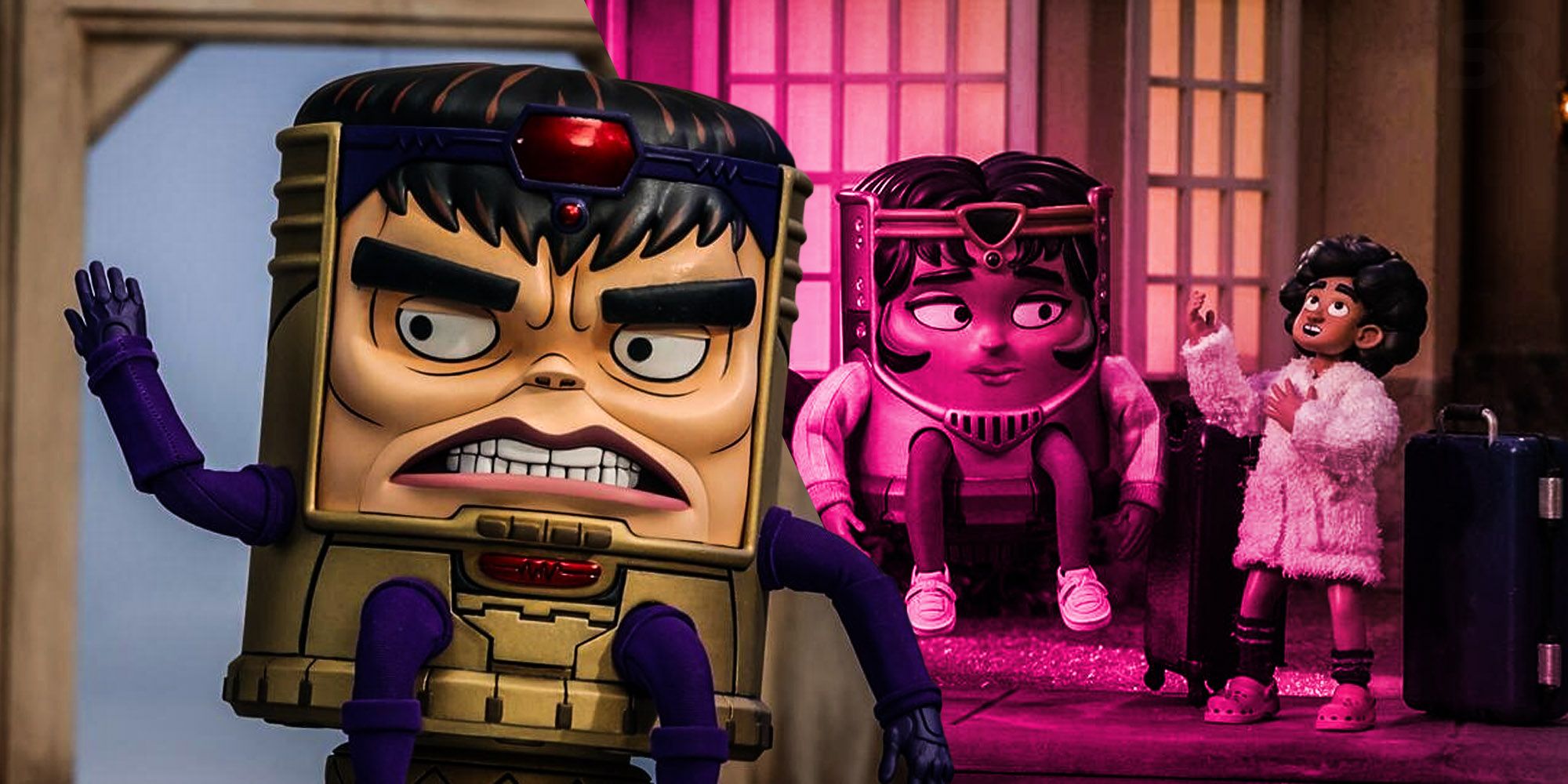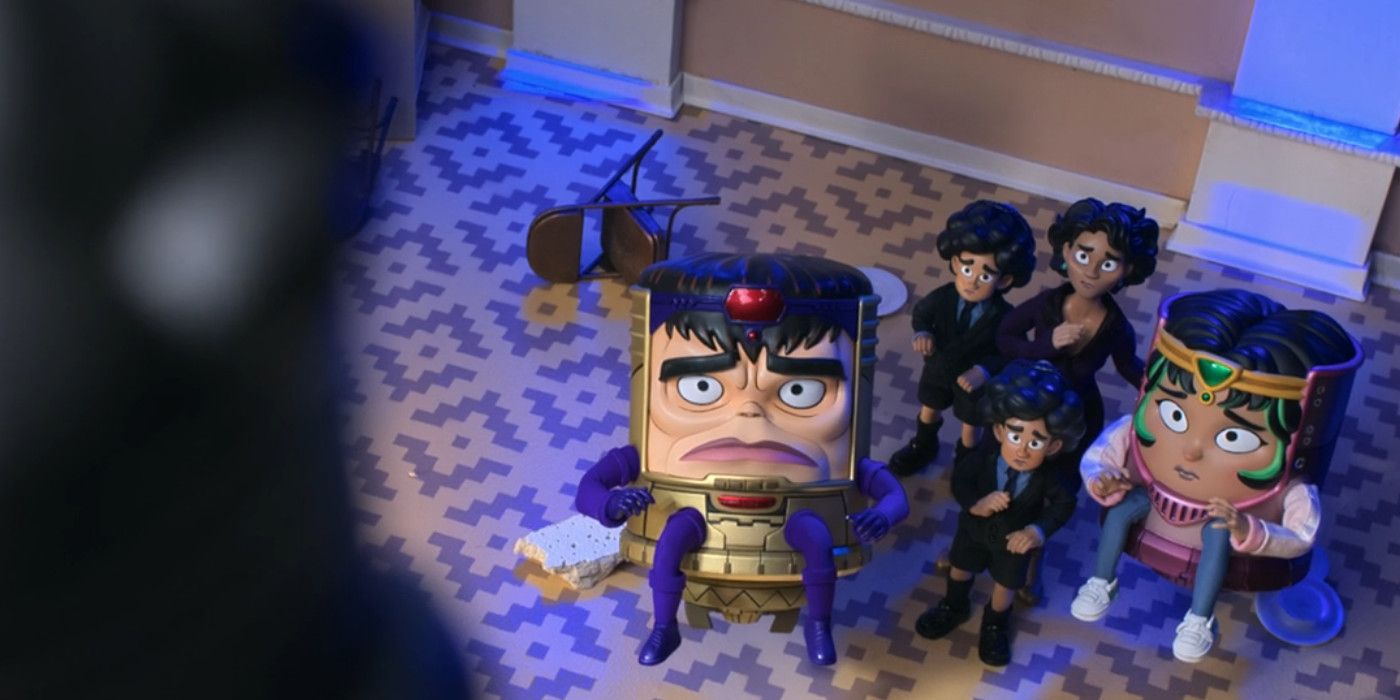M.O.D.O.K. may be a quirky step off of Marvel's usual path, but the stop-motion series has provided the most accurate portrayal of what a Marvel reality would look like. With the end of Phase 3, new additions to the MCU have been exploring the day-to-day repercussions of the events of Avengers: Endgame. However, M.O.D.O.K. provides a heroic slice-of-life that is unlike any other Marvel series before it.
The show follows M.O.D.O.K. — or Mental Organism Designed Only for Killing — an evil genius with grandiose plans to take over the world. Typically, the megalomaniac's plans fall to pieces before they can amount to anything too diabolical. But on top of his evil plans, M.O.D.O.K. lives a normal life. He goes to work at Advanced Idea Mechanics (or A.I.M), has date nights with his wife, Jodie, and faces the usual challenges parents do as he raises his children, Melissa and Lou — but the series also highlights how life would change in a universe where superheroes and supervillains exist.
Other superhero series have attempted to create a more realistic look at the world of superheroes before M.O.D.O.K.; The Falcon and the Winter Soldier heavily revolves around the political fallout of Endgame, showing the way average people were affected after the snap and how the world is putting itself back together. The Boys approaches the same cynical combination of capitalism and heroics that M.O.D.O.K. confronts, but the latter's animation and distance from the MCU allow the series to explore the bizarre in a way no other series could.
One of the biggest things M.O.D.O.K. focuses on is how relationships would be affected in the world of superheroes. Throughout the first season, M.O.D.O.K. and Jodie are having issues with their marriage as M.O.D.O.K. struggles to balance his work life and his family life. With a grand destiny in his sights, M.O.D.O.K. frequently prioritizes his work as a villain, leaving Jodie and the kids behind. Life as a superhero — or a villain — is demanding, and requires hard decisions when it comes to balancing priorities. This topic is briefly touched on with the few Avengers who have families, but the struggle isn't highlighted in the way it is in M.O.D.O.K. The family also struggles with issues no other family would, including raising a robot copy of their own son. At one point, Jodie even reaches out to a stranger to commiserate over how difficult it can be to be married to someone with superpowers. In the season finale, M.O.D.O.K. is required to decide between his greatest dreams and his families' lives; and he doesn't choose his family. All of these are things the families of real superheroes would have to confront in a real MCU.
The Easter egg-riddled first season of M.O.D.O.K. also shows how society would be shaped by the presence of superheroes. In the clash between capitalism and villainy, A.I.M is born — a company whose main goal is to collect power through technology. When M.O.D.O.K. runs it into the ground, it's bought by what appears to be a normal tech company, but is really an entity known as Hexus the Living Corporation, a parasitic embodiment of capitalism incarnate. Supervillains have formed a social hierarchy (one where M.O.D.O.K and his friends exist at the bottom). Wonder Man, a pending Avenger, sells underwear on the side. In the MCU, heroes tend to be portrayed in a vacuum, and very rarely are they shown interacting with and being influenced by society. In a real MCU, a capitalist influence on heroics would be inevitable; something M.O.D.O.K. has portrayed like no other series before it.










